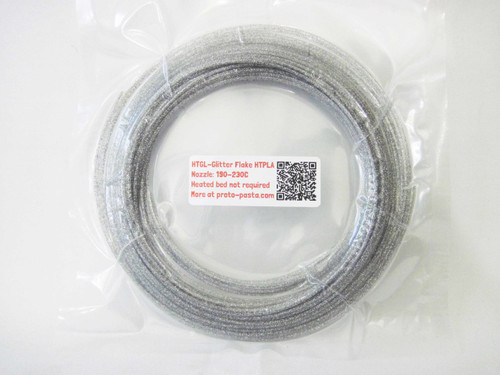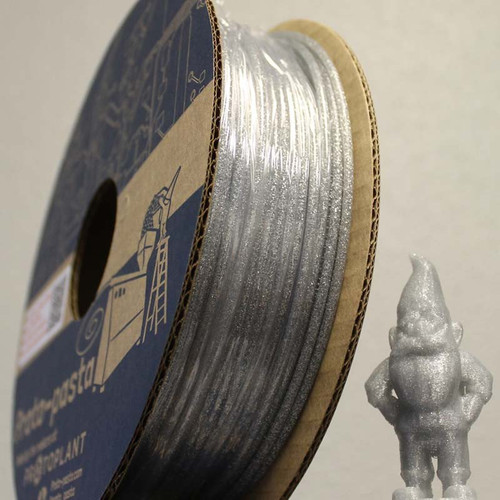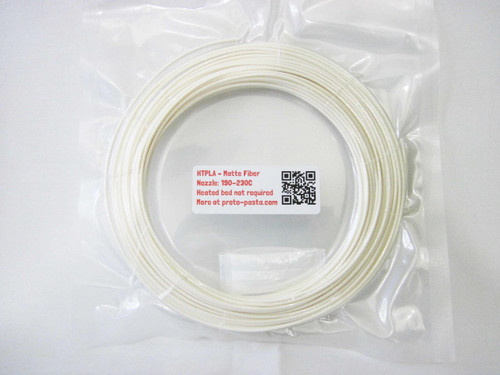- All material is sealed with desiccant in a plastic bag
- Usable on all PLA-compatible printers, such as Makerbot, Ultimaker, Printrbot, Lulzbot, and more!
- Glitter Flake HTPLA
- Prints with standard PLA settings - no heated bed or fancy hardware required
- No abrasive fillers so expect normal wear with standard nozzles
50 G Coil Sample of 1.75mm Proto-Pasta Glitter Flake HTPLA - Stardust Filament.
Give your prints a festive POP with sparkly Glitter Flake!
Sometimes you want a professional matte finish and sometimes you just want some shine! Take gloss to another level with Glitter Flake HTPLA. Print with the ease of standard PLA with standard hardware and temperatures, but make fun, mesmerizing prints that stand out. Celebrate good times with ornaments, disco balls, toys, and treasures. If you want to make a print more fun, just add glitter. Glitter Flake has little risk of clogging or wearing your nozzle, and it won't make a glitter mess, but beware, printing with glitter is sure to be addictive! Glitter particles will lay flat with smaller layers, giving top/bottom surfaces more shine than sidewall, so have some fun playing with resolution to see how the result changes!
Like our other HTPLAs, Glitter Flake HTPLA can be "Heat Treated" to increase crystallinity for "Higher Temperature" resistance compared to amorphous PLA, ABS, and co-polyesters like PETG! Glittler Flake HTPLA prints translucence, but turns opaque when heat treated (or crystallized). With a more crystalline structure, HTPLA's Heat Deflection Temperature (HDT) can be practically elevated to 120C (250F) or more depending on post-processing. Heat treated parts retain more stiffness to higher temperatures!
For this improved the performance, your prints should be baked in an oven until you see a change from translucent to opaque with reduced gloss. This visual change indicating the improved performance! We've seen the change take place in 5-10 minutes on thin walled parts but can take an hour or more. We've had good luck in a quality, at home convection oven at 110C (225F). Parts will get very "floppy" before becoming more firm, so please leave supports on your parts or support them and bake them on a flat, non-radiating surface (like glass, ceramic, or composite).
In our experience, good results were achieved using standard PLA parameters ranging from 190-230C nozzle with standard build surface preparation (blue tape, glue stick, or BuildTak). No heated bed required but up to 70C okay. Some shrinkage will occur in the heat treating process, so dimension critical parts may need to be scaled appropriately (as much as 2.5% in our experience).







